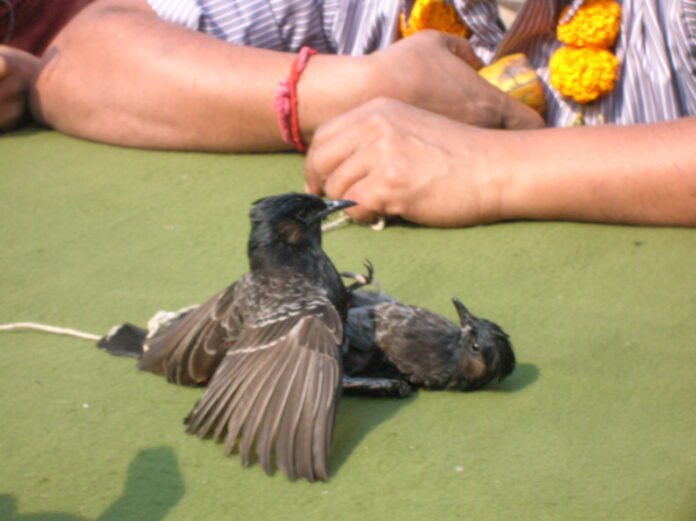In the northeastern state of Assam, the echoes of tradition clash with contemporary concerns as bird and buffalo fights make a comeback at festivals, particularly during the Magh Bihu harvest celebration. Following a nine-year hiatus, the Supreme Court of India lifted the ban on these age-old contests, stirring a blend of applause and opposition.
Despite a new state law aimed at ensuring the safety of the animals involved, wildlife activists remain critical of the revived tradition. The recently organized fights during the Magh Bihu festival featured bulbuls, songbirds comparable in size to a bluejay, engaging in aerial battles under the watchful eyes of spectators perched on trucks or clinging to tree branches.
Organizer Dijen Bharali contends that the fights are safe for the bulbuls, emphasizing that the birds tire but do not sustain injuries during the brief, 5 to 10-minute bouts. According to Bharali, 50 families participated in the daylong festival, bringing two birds each. The contested matches are judged, with the winning bird’s owner receiving a cash prize of 3,000 rupees ($36).
The Supreme Court’s 2014 ban on such animal fights, including bullock cart races, under the Prevention of Cruelty to Animals Act, was lifted last year. However, the revival comes with new laws set by state governments, aiming to balance tradition with animal welfare. Assam’s law mandates organizers to provide food and water for the birds and requires their release in good health at the contest’s conclusion. Failure to comply with these rules may result in a five-year ban on events.
The tradition itself traces its roots back to the 18th century, intertwined with the January harvest festival’s festivities, which include bonfires, feasts, and various games. Local residents play an active role by capturing wild birds ahead of the festival season, training them, and releasing them after the contests.
Amidst the controversy, animal rights activist Mubina Akhtar raises concerns about the primitive nature of such traditions in the current age of technology. She emphasizes the potential harm inflicted on the birds during fights, citing injuries or fatalities. Akhtar also critiques the practice of catching wild birds for these contests, urging a focus on the conservation of declining or disappearing species.
While the red-vented bulbul, the primary bird in these contests, is not currently listed as a threatened or endangered species, the debate surrounding the tradition underscores the delicate balance between preserving cultural heritage and ensuring the well-being of the animal kingdom in an evolving world.


